You are using an out of date browser. It may not display this or other websites correctly.
You should upgrade or use an alternative browser.
You should upgrade or use an alternative browser.
Triumphant: A Davy Crockett Presidency
- Thread starter Odinson
- Start date
Probably the Panama canal as the Nicaraguan is longer as it involves crossing Lake Nicaragua. Also, Lake Nicaragua's ecosystem is probably negatively impacted by being used to link the oceans.Which canal will be better the Nicaraguan or the Panama?
Chapter Forty Nine
1905-1909

President James Beaver
President James Beaver
James Beaver had succeeded President Longstreet after the latter’s death, serving for eleven months before being elected in his own right as president. Beaver kept the same cabinet that Longstreet had chosen, not wanting to experience any large shake ups. President Beaver was, unfortunately, later forced to find a new Secretary of War when Thomas Jackson of Virginia passed away in his sleep at the ripe age of eighty one. Beaver eventually settled on William Alexis Stone of Pennsylvania. Stone had campaigned for Beaver during the 1890 Pennsylvania gubernatorial election and the American president believed it would be a good reward.
William A. Stone.
Jackson would not be the only important government official to die while Beaver was in the Octagon House. Chief Justice Abraham Lincoln, who had been selected by Thaddeus Stevens himself back in 1861, died on July 2nd, 1905. Lincoln’s death sent a shockwave through the nation, having sworn in ten presidents (Smith, Lee, Colfax, Seymour, Pope, his son Robert Lincoln, Sickles, Earp, Longstreet, and Beaver) and was one of the most influential Chief Justices in American history, influencing the court on civil rights cases and monopoly regulation. Lincoln had served for forty four years, beating John Marshall’s record by nine years. But, despite the feeling that it was a legacy unable to truly be lived up to, Beaver would have to find somebody to fill the empty seat. After three weeks of searching, James Beaver nominated John Marshall Harlan of Kentucky. Harlan skirted the line between conservative Laborite and libral Democrat and was generally inoffensive to either party. Harlan was confirmed by the senate as the 8th Chief Justice of the United States Supreme Court.
Chief Justice John M. Harlan
In 1905, the United States was once again drawn into foreign affairs by serving as a mediator in August of 1905. The Russo-Japanese War came to an end after the signing of the Treaty of Portsmouth in September, which saw Russian troops leaving Manchuria, and Japan assuming authority over Korea and the southern portion of Sakhalin island. The United States had developed an interest in South East Asia after the Spanish American War, and had participated in putting down the Boxer Rebellion. Aware of Japan’s increasing military might, Secretary Stone was sent to Japan and met with Japanese government officials. An agreement was signed that reaffirmed that America would recognize Japanese dominion over Korea, and that the island nation would not interfere with the Philippines.
Like previous presidents, Beaver took action against unfair business practices in 1905 by having an ally in the house propose legislation regulating railroads. The act would help regulate railroad rates. While passing easily in the house, it was soon halted in the senate. Conservative Democratic Senator Nelson Aldrich opposed the reforms and appointed Joseph Weldon Bailey of Mississippi to head the bill. Senator Bailey opposed most reforms in general, and aimed to either kill the bill or alter it to the point where it was unrecognizable. Many opposed some of the more sweeping reforms proposed by the Laborites, there was enough support for the bill that Aldrich was sufficiently pressured to revoke control of authoring the bill from Senator Bailey. Heading of the bill was handed over to Senator William Alexander Harris of Kansas.The Hepburn Act was signed in 1906. As a compromise for the more conservative members of the senate, the bill possessed a vague wording in regards to court review of the ICC’s rate setting power.
Even before becoming president, James Addams Beaver was a conservationist. Now that he resided in the Octagon House, Beaver could launch a larger conservation program on a nationwide level. The 1906 Antiquities Act gave the president authority to create national monuments in federal lands. Beaver would create many reserves in the United States. Later in 1907, President Beaver established the Inland Waterways Commission to coordinate the building of water projects for both transportation and conservation purposes. Beaver’s policies towards conservation brought opposition between him and his Secretary of State Henry Teller. Teller, though his domain was foreign matters, not domestic, believed that the conservation efforts would hamper the economic development of the west. Pushback from other members of congress would halt Beaver’s conservation policy, preventing more conservation efforts.
Despite beginning his term with a high approval rating, his presidency would end on a sour note. Caused by stock manipulation to corner the market in the United Copper Company. The scheme to corner the market failed and sent United Copper spiraling into bankruptcy. The failure of United Copper led to the State Savings Bank of Butte Montana declaring insolvency. This resulted in a panic as the Mercantile National Bank in New York City experienced a run as depositors took out their savings from the bank. Following this was a run on banks associated with the Mercantile National Bank. To prevent the taint following major heads of each bank, the New York Clearing House forced Charles W. Morse and F. Agustus Heinze, who were at the heart of the brewing economic problem, to resign all banking interests. Soon, however, the Knickerbocker Trust Company was subjected to a bank run, which in turn resulted in other banks becoming more reluctant to lend money. This led to loans for stock brokers soaring, and they were unable to gain enough finances to fuel the stock market, resulting in the spread of the panic. Through the intervention of wealthy capitalists and bankers such as John D. Rockefeller and J.P. Morgan, the collapse of the stock exchange was narrowly avoided. To prevent another crash so soon after the first, Morgan convinced President Beaver to allow a merger of Tennessee Coal, Iron and Railroad Company and U.S. Steel to prevent the collapse of the former. The panic had resulted in a major disruption of the American economy. Production had sharply decreased, as did imports. Unemployment rose from under two percent to roughly eight percent while immigration rates dropped to below eight hundred thousand.
The Democrats, who had been kept out of the executive branch for fourteen years by the time of the panic, found a new weapon to wield against the Laborites. Conservatives bashed James Beaver and deceased Longstreet for their crusades against trust busting and monopolies, blaming the recent panic as byproducts of “radical labor policies.” Party fatigue and the recent panic contributed to what is commonly known as the “Conservative Backlash of 1908” which saw the conservative Democrat Alton B. Parker of New York defeating James Beaver for reelection in November.
During the lame duck period between the November election and Parker’s inauguration in March, Associate Justice James Ewell Brown Stuart died of a stroke on December 14th, 1908. Known as the “Cavalier of the Court” for his exploits in the U.S. Cavalry, Stuart had been a popular figure who remained in the public eye for decades. His seat would remain unoccupied until after Parker was inaugurated.
The Parker Cabinet
Vice President: Henry G. Davis
Secretary of State: Richard Olney
Secretary of Treasury: John Kean
Secretary of War: Theodore Roosevelt
Attorney General: John Alden Dix
Postmaster General: Edward C. Wall
Secretary of the Navy: Thomas C. Platt
Secretary of the Interior: Joseph Gurney Cannon
Last edited:
Glad to see Harlan get the Chief Justice seat. He has always been a favorite associate justice of mine alongside John McLean, David Davis, and Samuel F. Miller. Sad to see Beaver lose office to Alton B. Parker of all people though.
I have been DYING to find a way for him to win the Presidency in a timeline. Having a panic occur under the third Labor president in a row seemed to be a great idea. Parker is chosen at the 1908 Democratic Convention because he seemed likable and just captured the idea of broad conservatism.Glad to see Harlan get the Chief Justice seat. He has always been a favorite associate justice of mine alongside John McLean, David Davis, and Samuel F. Miller. Sad to see Beaver lose office to Alton B. Parker of all people though.
Choosing his cabinet was the hardest part of this update though.
Seems oddly fitting to have Jackson and Lincoln die so close to each other.
Tough call, as you have written an interesting alternate history for both them, but I'll say Mexico since they had an update less recently.Should the next update be on Texas or Mexico?
Tough call, as you have written an interesting alternate history for both them, but I'll say Mexico since they had an update less recently.
Seconded. They're due for a check-in.
Mexico, then Texas, then California, and maybe Baja, if they're still aroundShould the next update be on Texas or Mexico?
Chapter Fifty
1893-1909: Mexico
Following the popular President Gonzalez, Ignacio Mariscal was a logical successor. He had served as the Secretary of Foreign Affairs for Gonzalez and Diaz, and had served in the foreign department in some form or another for every president since Benito Juarez himself. When Mariscal was in office as president, Mexico experienced peaceful times both domestically and in foreign affairs. During the 1890s, Mexico adopted the gold standard and suspended the coinage of silver, a different direction than what Mexico’s neighbors to the north east had adopted. Having to continue overseeing the economic growth of Mexico and the building of the canal, President Mariscal would be reelected in 1897. While suspicious of American intervention in foreign affairs (While Mexico remembered American President Smith and his assistance during the French Intervention, they also remembered President Cass and his war of aggression), Mexico diplomatically supported the United States during the Spanish American War. Despite the shared cultural heritage, Mexico deemed that Cuba was to be in America’s sphere of influence.
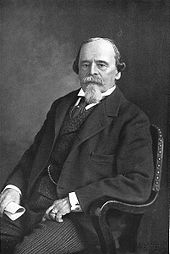
Ignacio Mariscal
President of Mexico: 1893-1901
During the 1901 election, the Liberal Party split in two; the Liberal Party supporting Jose Yves Limantour, and the more liberal faction breaking off to form the Mexican People’s Party (Partido del Pueblo Mexicano/ PPM) which supported Roque Estrada Reynoso. The more conservative Limantour won the election. The PPM was a large tent party of Mexican leftists ranging from moderate left center types to full blown Marxists who had been inspired by Texan President Hogg. The Liberal Party, despite the name, had slowly become a party of conservatism. It was during Jose Limantour’s first term that the Mexican owned Nicaraguan Canal was finally finished in the year 1902. The following year, Mexico became concerned over American interference in Panama and the alliance between the two nations. Many members in the Mexican government believed that the Americans were infringing in their sphere of influence in central america.
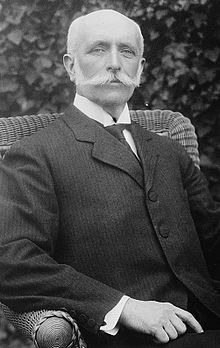
Jose Yves Limantour
President of Mexico: 1901-1909
In early 1904, after decades of oppression and a limited occupation, the former nation of Guatemala revolted against Mexican rule. Led by Manuel Barillas, the Guatemalan Revolt caught Mexico completely off guard as rebel units severed telegraph cables linking the regional capital and the rest of the nation. Using arms procured from the other Central American nations trapped in the Aztek eagle’s nest, the National Liberation Movement (MLN) began conducting a guerrilla campaign against the occupation soldiers. MLN soldiers made the countryside dangerous for small Mexican patrols. President Limantour increased the military presence in the area and instructed the new military governor Bernardo Reyes to crush the growing rebellion. Upon arrival, General Reyes established a strict curfew in Guatemala City that forbade civilians from being out after 4:30 in the afternoon, and ended 10:00 in the morning the next day. Radical members of the MLN began a bombing campaign in the city, hoping to kill the military governor and other high ranking members of the Federal Army. Despite inflicting damage to several prominent buildings in the city, Reyes was not harmed, neither were any of his prominent underlings. After a period of seven months, rebel General Manuel Barillas was captured. Deprived of effective leadership, the National Liberation Movement fell apart. Barillas was executed for terrorism on Janurary 15th, 1905. For the rest of Limantour’s presidency, Guatemala remained under a heavy occupation.
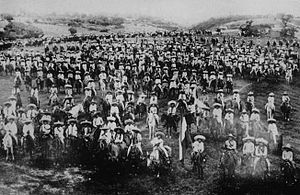
National Liberation Movement soldiers
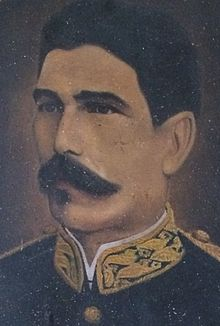
Manuel Barillas
The Yankee Panic of 1907 had a negative impact on the other North American nations. The economic downturn resulted in a drop for demand for Mexican precious metals like gold, silver, copper, and zinc. In turn Mexico cut its imports of horses and mining equipment. The railroad industry remained safe as Mexican companies were busy charting new routes in Central America. Though the downturn was not completely devastating, it had put a stop to the continuous growth since President Juarez left office. It was enough to affect the 1909 presidential election. The PPM candidate, Francisco Madero, defeated the Liberal Bernardo Reyes. The Madero family had originally hailed from Coahuila. After Texas annexed the state during the 1850s, the family relocated to Nuevo Leon. A family of wealthy industrialists and philanthropists, Francisco ultimately gravitated to the side of the workers and the need for reform. He served in the municipal government in Nuevo Leon and helped run a MPP leaning newspaper. Upon taking office, Madero proclaimed it was the beginning of a freeier, more equal Mexico.
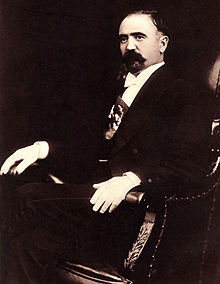
Francisco I. Madero
President of Mexico: 1909-
Following the popular President Gonzalez, Ignacio Mariscal was a logical successor. He had served as the Secretary of Foreign Affairs for Gonzalez and Diaz, and had served in the foreign department in some form or another for every president since Benito Juarez himself. When Mariscal was in office as president, Mexico experienced peaceful times both domestically and in foreign affairs. During the 1890s, Mexico adopted the gold standard and suspended the coinage of silver, a different direction than what Mexico’s neighbors to the north east had adopted. Having to continue overseeing the economic growth of Mexico and the building of the canal, President Mariscal would be reelected in 1897. While suspicious of American intervention in foreign affairs (While Mexico remembered American President Smith and his assistance during the French Intervention, they also remembered President Cass and his war of aggression), Mexico diplomatically supported the United States during the Spanish American War. Despite the shared cultural heritage, Mexico deemed that Cuba was to be in America’s sphere of influence.
Ignacio Mariscal
President of Mexico: 1893-1901
During the 1901 election, the Liberal Party split in two; the Liberal Party supporting Jose Yves Limantour, and the more liberal faction breaking off to form the Mexican People’s Party (Partido del Pueblo Mexicano/ PPM) which supported Roque Estrada Reynoso. The more conservative Limantour won the election. The PPM was a large tent party of Mexican leftists ranging from moderate left center types to full blown Marxists who had been inspired by Texan President Hogg. The Liberal Party, despite the name, had slowly become a party of conservatism. It was during Jose Limantour’s first term that the Mexican owned Nicaraguan Canal was finally finished in the year 1902. The following year, Mexico became concerned over American interference in Panama and the alliance between the two nations. Many members in the Mexican government believed that the Americans were infringing in their sphere of influence in central america.
Jose Yves Limantour
President of Mexico: 1901-1909
In early 1904, after decades of oppression and a limited occupation, the former nation of Guatemala revolted against Mexican rule. Led by Manuel Barillas, the Guatemalan Revolt caught Mexico completely off guard as rebel units severed telegraph cables linking the regional capital and the rest of the nation. Using arms procured from the other Central American nations trapped in the Aztek eagle’s nest, the National Liberation Movement (MLN) began conducting a guerrilla campaign against the occupation soldiers. MLN soldiers made the countryside dangerous for small Mexican patrols. President Limantour increased the military presence in the area and instructed the new military governor Bernardo Reyes to crush the growing rebellion. Upon arrival, General Reyes established a strict curfew in Guatemala City that forbade civilians from being out after 4:30 in the afternoon, and ended 10:00 in the morning the next day. Radical members of the MLN began a bombing campaign in the city, hoping to kill the military governor and other high ranking members of the Federal Army. Despite inflicting damage to several prominent buildings in the city, Reyes was not harmed, neither were any of his prominent underlings. After a period of seven months, rebel General Manuel Barillas was captured. Deprived of effective leadership, the National Liberation Movement fell apart. Barillas was executed for terrorism on Janurary 15th, 1905. For the rest of Limantour’s presidency, Guatemala remained under a heavy occupation.
National Liberation Movement soldiers
Manuel Barillas
The Yankee Panic of 1907 had a negative impact on the other North American nations. The economic downturn resulted in a drop for demand for Mexican precious metals like gold, silver, copper, and zinc. In turn Mexico cut its imports of horses and mining equipment. The railroad industry remained safe as Mexican companies were busy charting new routes in Central America. Though the downturn was not completely devastating, it had put a stop to the continuous growth since President Juarez left office. It was enough to affect the 1909 presidential election. The PPM candidate, Francisco Madero, defeated the Liberal Bernardo Reyes. The Madero family had originally hailed from Coahuila. After Texas annexed the state during the 1850s, the family relocated to Nuevo Leon. A family of wealthy industrialists and philanthropists, Francisco ultimately gravitated to the side of the workers and the need for reform. He served in the municipal government in Nuevo Leon and helped run a MPP leaning newspaper. Upon taking office, Madero proclaimed it was the beginning of a freeier, more equal Mexico.
Francisco I. Madero
President of Mexico: 1909-
Last edited:
Nice look at events in Central America and how they're influenced by stuff that's already been discussed.
Well, there's peace for the most part. All of the North American nations are friendly with the United Kingdom so there isn't going to be a "WW I but in North America" thing. After the whole kicking out the Chinese thing in the Dominion of California, the dominion isn't exactly popular on the continent. The others still have trade with them through, but many in Texas has started to do more trading with Baja as a form of protest. In America, Chinese Americans face less discrimination than in OTL at this time.Also, what's the situation like in North America right now? I kinda forgot
Mexico, Texas, and America have a decent working relationship, though America and Mexico are kind of naturally suspicious of one another.
The next update will deal with Texas, I think the Galveston Hurricane will be a major part of the chapter. Must decide on if Hogg will return for another term or just be a single term president. Also might touch upon Texan Coahuila and Venustiano Carranza. Definitly got to touch on the oil boom in Texas.
Here's hoping that Madero avoids the tragedy that marked his OTL presidency (Don't trust Victoriano Huerta!)
Also for the British Labour Party thing, maybe they can refer to themselves as the Worker's Party.
Finally, we all know that Jim Hogg deserves another term. This TL is what introduced me to him, and I'd be interested to see how he thinks Texas has progressed since he left office.
Also for the British Labour Party thing, maybe they can refer to themselves as the Worker's Party.
Finally, we all know that Jim Hogg deserves another term. This TL is what introduced me to him, and I'd be interested to see how he thinks Texas has progressed since he left office.
Last edited:
Can you show me a map of the situation? I know there was one earlier, but I forgot where it wasWell, there's peace for the most part. All of the North American nations are friendly with the United Kingdom so there isn't going to be a "WW I but in North America" thing. After the whole kicking out the Chinese thing in the Dominion of California, the dominion isn't exactly popular on the continent. The others still have trade with them through, but many in Texas has started to do more trading with Baja as a form of protest. In America, Chinese Americans face less discrimination than in OTL at this time.
Mexico, Texas, and America have a decent working relationship, though America and Mexico are kind of naturally suspicious of one another.
The next update will deal with Texas, I think the Galveston Hurricane will be a major part of the chapter. Must decide on if Hogg will return for another term or just be a single term president. Also might touch upon Texan Coahuila and Venustiano Carranza. Definitly got to touch on the oil boom in Texas.
Share: